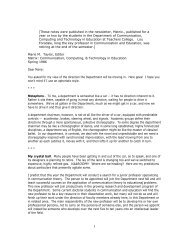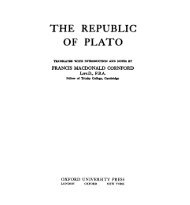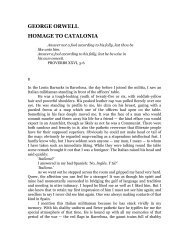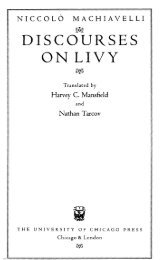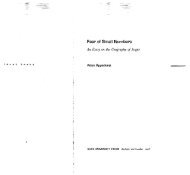Hearth Surgery; The quest for a stove that can save the ... - Studyplace
Hearth Surgery; The quest for a stove that can save the ... - Studyplace
Hearth Surgery; The quest for a stove that can save the ... - Studyplace
Create successful ePaper yourself
Turn your PDF publications into a flip-book with our unique Google optimized e-Paper software.
<strong>Hearth</strong> <strong>Surgery</strong>; <strong>The</strong> <strong>quest</strong> <strong>for</strong> a <strong>stove</strong> <strong>that</strong> <strong>can</strong> <strong>save</strong> <strong>the</strong> world. <strong>The</strong> New Yorker December 21, 2009<br />
Page 8<br />
der. Her daughter had been sick <strong>for</strong> eight days, she told us, and was running a fever. "You should take her to <strong>the</strong> clinic,"<br />
Smith said. "Eight days is a long time at <strong>that</strong> age." JimÈnez looked at him with hooded eyes and turned back to <strong>the</strong><br />
<strong>stove</strong>. If she went to <strong>the</strong> clinic, <strong>the</strong>y'd just send her to <strong>the</strong> hospital, she said. "And <strong>that</strong>'s where people go to die."<br />
Smith later prevailed upon JimÈnez to let his team drive her to his clinic, where a physician gave both infants a diagnosis<br />
of severe pneumonia. Milvia was hypoxic: her lungs were so full of fluid <strong>that</strong> <strong>the</strong>y couldn't get enough oxygen<br />
into her blood. Her twin bro<strong>the</strong>r, Selby, was even sicker: his blood was only eighty-two per cent oxygenated, and his<br />
lungs made crackling noises under a stethoscope. "He could pass away tonight," Smith said. Pneumonia is <strong>the</strong> leading<br />
killer of children worldwide, and San Lorenzans are especially susceptible to it. <strong>The</strong>y're so malnourished <strong>that</strong> <strong>the</strong>ir<br />
height, at eighteen months, is already two standard deviations below <strong>the</strong> norm. And <strong>the</strong>ir immune systems are fur<strong>the</strong>r<br />
weakened by <strong>the</strong> toxins in wood smoke. On average, Smith has found, <strong>the</strong> children in <strong>the</strong> village get pneumonia every<br />
o<strong>the</strong>r year.<br />
"So this is <strong>the</strong> bottom line," he told me <strong>that</strong> night, bringing up a graph on his laptop. "This is seventeen years of applying<br />
<strong>for</strong> grants, seven years of research, three and a half million dollars, and me coming down here <strong>for</strong> a week of<br />
every month." Thanks to his electronic sensors, Smith knew his subjects' cooking habits in microscopic detail. He knew<br />
when <strong>the</strong>y lit <strong>the</strong> <strong>stove</strong> but left <strong>the</strong> room while it was burning. He knew how much smoke was in <strong>the</strong> air when <strong>the</strong>y were<br />
cooking and how much carbon monoxide was in <strong>the</strong>ir breath. And by combining such data with <strong>the</strong>ir weekly medical<br />
records he could show, <strong>for</strong> <strong>the</strong> first time, how <strong>the</strong> risk of disease increased with exposure-what epidemiologists call a<br />
dose-response curve.<br />
"For groups like <strong>the</strong> Gates Foundation and USAID, <strong>the</strong> metric is cost-effectiveness," Moss had told me. "How<br />
many people are you going to <strong>save</strong> with a hundred million dollars? That's what <strong>the</strong>y want from this field, and <strong>the</strong>y don't<br />
have it yet." Until now. Smith had data on half a dozen diseases <strong>that</strong> a decent <strong>stove</strong> could help prevent (it could lower<br />
blood pressure about as much as a low-salt diet, <strong>for</strong> instance). But <strong>the</strong> most dramatic numbers were <strong>for</strong> pneumonia. <strong>The</strong><br />
graph on his laptop had an x-axis <strong>for</strong> exposure and a y-axis <strong>for</strong> disease. In between, <strong>the</strong> data followed a steeply rising<br />
curve. <strong>The</strong> children who inhaled <strong>the</strong> least smoke were between sixty-five and eighty-five per cent less likely to contract<br />
severe pneumonia than those who inhaled <strong>the</strong> most.<br />
"Those numbers are as good as <strong>for</strong> any vaccine," Smith said. <strong>The</strong> plancha <strong>stove</strong>s cost about a hundred dollars each,<br />
yet <strong>the</strong>y were a bargain in public-health terms. "In our country, we pay <strong>for</strong>ty thousand dollars per year of life <strong>save</strong>d,"<br />
Smith said. "Even if you take <strong>the</strong> lower end of <strong>the</strong> benefit, this would cost at most a few hundred dollars per life-year.<br />
It's a no-brainer." In a country like India, he and a team of co-authors later estimated, in an article in <strong>The</strong> Lancet, <strong>stove</strong>s<br />
could <strong>save</strong> more than two million lives in ten years.<br />
Smith's data may be good enough <strong>for</strong> <strong>the</strong> Gates Foundation, but <strong>the</strong> harder part will be convincing local villagers.<br />
Most of <strong>the</strong> San Lorenzans liked <strong>the</strong>ir <strong>stove</strong>s, and maintained <strong>the</strong>m well enough. But <strong>the</strong>y considered <strong>the</strong> smoke from<br />
cooking more of an annoyance than a threat. (In Africa, some even welcome it as a defense against flies and mosquitoes.)<br />
"<strong>The</strong>se kinds of correlations just aren't <strong>that</strong> easy to make," Smith said. "Think of cigarettes. <strong>The</strong>y kill one out of<br />
two smokers prematurely-no war has ever had <strong>that</strong> effect. Yet famous scientists have died saying <strong>the</strong>re is no connection."<br />
To imagine cooking as harmful is an even greater leap. "It's not cyanide," Still said. "<strong>The</strong>y <strong>can</strong> always think of an<br />
eighty-nine-year-old who's been cooking over an open fire all her life. And Grandma's doing just fine."<br />
<strong>The</strong> best examples of this insouciance, in San Lorenzo, were <strong>the</strong> wood-fired saunas <strong>that</strong> most of <strong>the</strong> villagers used.<br />
<strong>The</strong> tradition dated back to <strong>the</strong> ancient Mayans, who would heat rocks over an outdoor fire and carry <strong>the</strong>m into a stone<br />
bathhouse. <strong>The</strong> modern version, known as a chuj, was just a mud-caked hut about <strong>the</strong> size of a large doghouse. It had an<br />
open fire inside, a pallet to lie on, and a blanket to seal <strong>the</strong> door. A chuj was essentially a human smokehouse, yet <strong>the</strong><br />
same villagers who swore by <strong>the</strong>ir plancha <strong>stove</strong>s-including Vincente Tema, one of Smith's Guatemalan staff-took<br />
sauna baths once or twice a week <strong>for</strong> half an hour. (<strong>The</strong> baths were especially good <strong>for</strong> pregnant women, <strong>the</strong>y said.)<br />
When I asked Tema if I could try his chuj, Smith shrugged. I might want to take a carbon-monoxide monitor with me,<br />
he said.<br />
<strong>The</strong> experience wasn't altoge<strong>the</strong>r unpleasant-<strong>the</strong>re are worse things, apparently, than becoming a giant slab of bacon.<br />
But by <strong>the</strong> time I stumbled out, sixteen minutes later, my head was swimming. When Smith later downloaded <strong>the</strong><br />
monitor's data at his office, it showed <strong>the</strong> carbon monoxide in <strong>the</strong> chuj spiking to five hundred parts per million, <strong>the</strong>n<br />
abruptly levelling off. <strong>The</strong> program wasn't designed to show levels any higher than <strong>that</strong>, he explained. "Oh, buddy," Still<br />
said, staring at <strong>the</strong> screen. "If you'd gone to a thousand <strong>for</strong> ten minutes, you'd be in a coma now."



